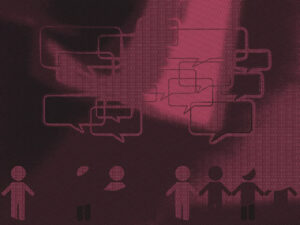Living with celiac disease can often be accompanied by social stigma and misunderstanding from peers, friends, and even family members. I have experienced this myself and I am not at all an isolated case.
During Celiac Disease Awareness Month I’m compelled to share a perspective that many are not aware of and as a result, those of us with Celiac Disease suffer in silence. My intention is to be a voice for those who are either unable to speak up, or for whatever reason, choose not to.
suffer in silence. My intention is to be a voice for those who are either unable to speak up, or for whatever reason, choose not to.
Many people lack awareness of the severity of celiac disease and may perceive it as merely a dietary preference rather than a serious medical condition. This misunderstanding can lead to feelings of isolation, frustration, and anxiety for individuals with celiac disease, especially in social settings where food is involved. Moreover, the need to constantly explain and advocate for one’s dietary restrictions can be exhausting and may strain personal relationships.
 A great example for me was what led me to write my book, Journey of a Celiac’s Soul: A Second Chance at Life.
A great example for me was what led me to write my book, Journey of a Celiac’s Soul: A Second Chance at Life.
I’ve taken steps to raise awareness within my church community about the challenges faced by individuals living with Celiac Disease, particularly regarding their inability to partake in one of the most sacred rituals: the taking of the Eucharistic host.
Traditionally, hosts used for Mass must contain gluten to be considered valid matter. However, there are low-gluten hosts available, containing minimal amounts of gluten (as little as 0.01%), which can still be detrimental to one’s health and well being.
By fostering understanding and advocating for accessible alternatives, we can ensure that all members of our community, regardless of dietary restrictions, can fully participate in the spiritual practices that are central to our faith.
The Solution is Education and Advocacy
The key to addressing social stigma and misunderstanding surrounding celiac disease lies in education and advocacy. Individuals with celiac disease can take proactive steps to raise awareness about the condition by sharing their experiences, providing accurate information, and dispelling common myths and misconceptions. This can be done through conversations with friends and family, social media advocacy, participation in celiac disease awareness events, and sharing resources such as informative articles and documentaries.
Additionally, fostering open communication and understanding within personal relationships is crucial. Individuals with celiac disease can communicate their needs and boundaries clearly to friends and family members, explaining the importance of adhering to a strict gluten-free diet for their health and well-being. Encouraging empathy, patience, and support from loved ones can help alleviate feelings of isolation and create a more inclusive and understanding environment.
By raising awareness, promoting understanding, and advocating for their needs, individuals with celiac disease can challenge social stigma and create a supportive community that embraces and accommodates their dietary requirements.


